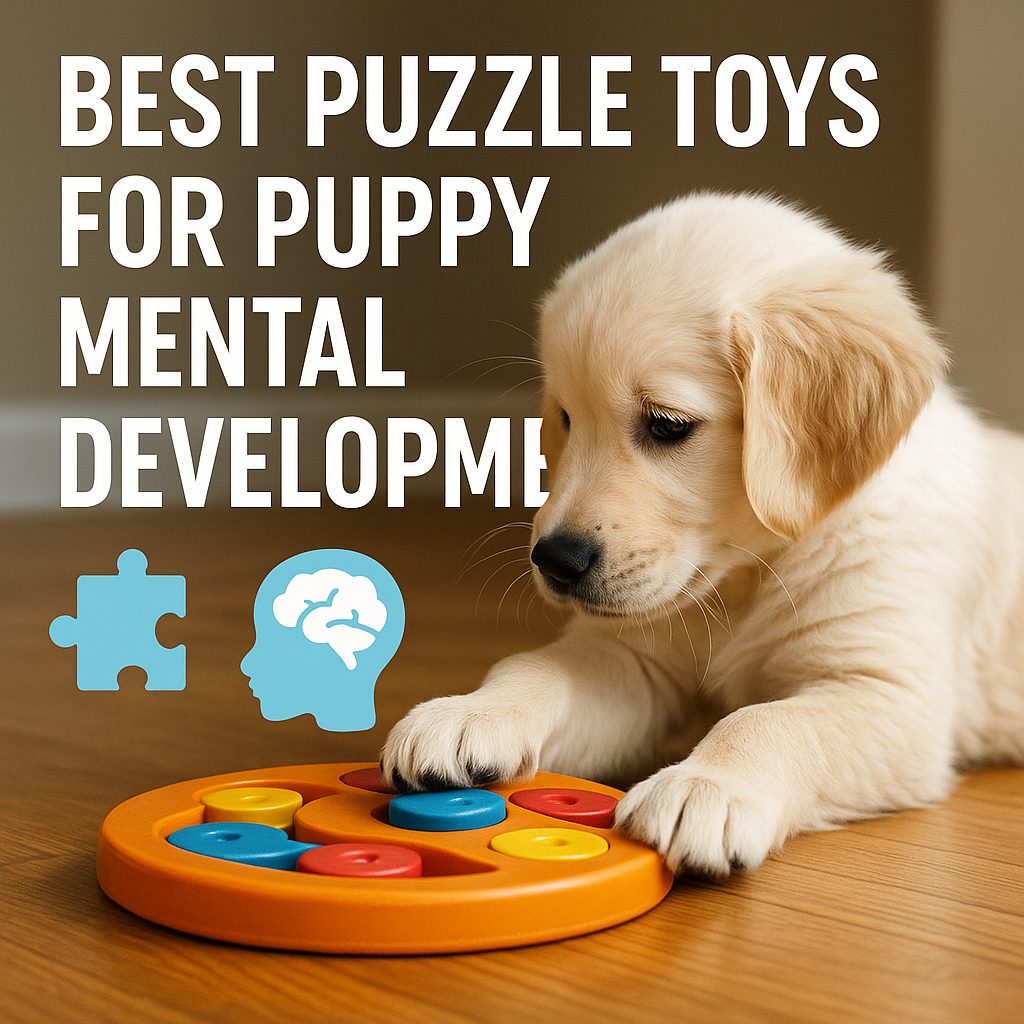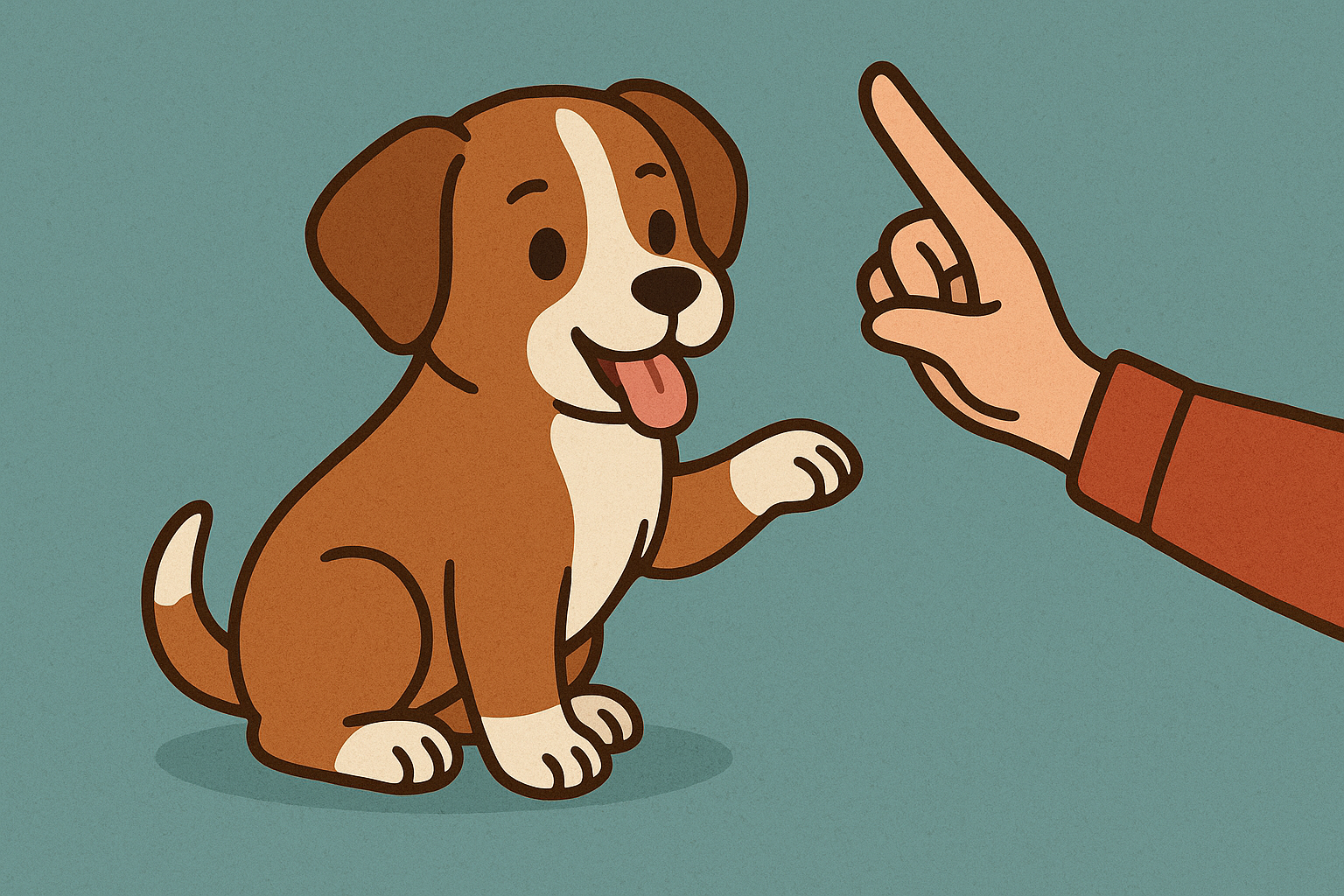Understanding Puppy Mental Development
Puppy mental development is a fascinating process that involves several critical stages. During the early weeks to months of a puppy’s life, they are rapidly learning about the world around them. Mental stimulation is crucial during this period, as it shapes their cognitive abilities and behavioral patterns. Proper mental engagement can lead to well-adjusted adult dogs with fewer behavioral issues. By integrating the right tools, such as puzzle toys, into their learning environment, you’ll promote healthy growth and curiosity.
What to Look for in Puzzle Toys
When selecting puzzle toys for your puppy, safety should be a top priority. Always ensure that the materials used in the toys are non-toxic and durable enough to withstand puppy bites. Key features of effective puzzle toys include varying levels of complexity to match your puppy’s developing skills and an appropriate size to prevent choking hazards. Durability is also crucial since puppies can be rough with their toys, and choosing a robust toy will ensure it lasts.
Top Puzzle Toys for Puppies
Interactive Treat Dispensers
Kong’s Puppy Goodie Bone is a popular interactive treat dispenser that captivates puppies with its unique design. This toy provides mental stimulation by challenging puppies to retrieve treats hidden inside, which can keep them engaged for long periods. The process of figuring out how to get the treat enhances their problem-solving skills and keeps them entertained.
Activity Balls
The Pet Zone IQ Treat Ball is an excellent choice for promoting problem-solving skills in puppies. By adjusting the difficulty level, this toy allows gradual progression in your puppy’s learning. Puppies must nudge and roll the ball to release treats, which encourages active play and mental engagement—a perfect combination for developmental enrichment.
Plush Puzzle Toys
ZippyPaws’ Burrow Squeaky Hide and Seek Plush Toys offer a delightful challenge for puppies. These toys often come with small, plush creatures that can be hidden in a larger toy. Encouraging natural hunting instincts, these toys are designed to stimulate a puppy’s mind through interactive play that mimics real-world scenarios.
Snuffle Mats
Paw5 Wooly Snuffle Mat introduces scent-driven explorations for puppies. This puzzle toy utilizes the dog’s natural foraging instincts, making them search through its surface to find hidden treats. According to Sophia Yin, a well-respected expert in animal behavior, “Engaging a puppy’s natural skills boosts their cognitive and sensory development, laying the foundation for complex problem-solving skills.” This is an excellent tool for refining their ability to focus and think critically while enhancing olfactory acuity.
Puzzle Boards
Trixie Pet Products’ Mini Mover Activity Strategy Game is an innovative puzzle board that enriches a puppy’s problem-solving capabilities. With compartments, levers, and sliding knobs, it promotes cognitive skill development as puppies manipulate the toy to find hidden rewards. Such toys encourage strategic thinking and patience in your pup, aiding in advanced mental growth.
How to Introduce Puzzle Toys to Your Puppy
Introducing puzzle toys to your puppy should be done gradually and positively. Start by selecting a toy that matches their current skill level to prevent frustration. Demonstrate how the toy works and give them plenty of encouragement as they begin to explore it. Patience and praise will build their confidence, promoting sustained interest and interaction with the toy.
Benefits of Regularly Using Puzzle Toys
Engaging puppies with puzzle toys regularly provides numerous benefits. They enhance cognitive abilities by challenging your pup to think and strategize. This mental exercise can also reduce anxiety and destructive behaviors, as it diverts their energy into productive play. Moreover, playing with your puppy using these toys can strengthen your bond, building trust and communication between you and your furry friend.
Additional Tips for Puppy Behavioral Development
Integrating puzzle toys into a puppy’s routine ensures regular mental stimulation. Complement these toys with other enriching activities like training sessions or outdoor expeditions to provide a well-rounded approach to mental development. Always monitor your puppy’s progress and adapt their activities as they mature, ensuring they remain challenged yet not overwhelmed.
Regularly assess whether the difficulty level of the toys is suitable for their current mental capabilities. Adjust as required to keep them engaged but not frustrated. Staying attentive to their behavior will help accommodate their evolving needs and maximize their developmental potential.
Conclusion
Puzzle toys play a monumental role in nurturing puppy mental development, providing critical mental stimulation that leads to enhanced cognitive growth and behavior. By thoughtfully selecting and introducing these toys, you set the stage for a lifetime of learning and positive behavior. Encourage your puppy’s developmental journey by choosing toys that fit their unique personality and growing cognitive needs.
FAQs
How often should I give my puppy puzzle toys?
For optimal results, incorporate puzzle toys into your puppy’s daily routine. This frequent engagement provides regular mental stimulation that can significantly impact their development.
Are there any risks associated with these toys?
While puzzle toys are generally safe, it is crucial to choose ones made of non-toxic materials and appropriate sizes that pose no choking risks. Regularly inspect them for wear and tear.
How do I choose the right puzzle toy for my puppy’s breed and size?
Match the toy’s complexity and size to your puppy’s breed characteristics and current developmental stage. A toy should challenge your puppy without causing frustration, promoting cognitive growth smoothly.## FAQs
Can puzzle toys help with a puppy’s socialization skills?
Yes, puzzle toys can play an important role in a puppy’s socialization by exposing them to new experiences and situations. These toys can help in teaching puppies patience and focus, which are crucial skills during social interactions. Additionally, when used during playtime with other dogs or humans, they can foster cooperative behavior and communication.
What’s the best way to clean puzzle toys to ensure they remain hygienic for my puppy?
Regular cleaning of puzzle toys is essential to maintain hygiene and prevent the spread of germs. Most puzzle toys can be washed with warm, soapy water; be sure to rinse thoroughly to remove any soap residue. For dishwasher-safe toys, running them through a dishwasher cycle is an efficient cleaning method. Always check the manufacturer’s instructions for specific cleaning recommendations.
How can I tell if a puzzle toy is too difficult for my puppy?
If your puppy shows signs of frustration, disinterest, or avoids the toy altogether, it might be too complex for their current development level. Puppies should make some progress with the toy fairly quickly to remain engaged and confident. Start with simpler toys and gradually introduce more complex ones to ensure they remain challenged yet not discouraged.
Are there any specific puzzle toys recommended for teething puppies?
Yes, some puzzle toys are designed specifically with teething in mind. Look for toys that are made of softer rubber or materials, which are gentle on a puppy’s gums. These toys can soothe the discomfort of teething while simultaneously stimulating their mind. Items such as the Kong Puppy Goodie Bone are great for teething puppies as they are both durable and suitable for chewing.
How can I ensure my puppy doesn’t become overly dependent on puzzle toys?
To prevent dependency, use puzzle toys as part of a varied routine that includes other forms of mental and physical activities. Mix in regular play sessions, obedience training, and socialization activities so that your puppy enjoys a balanced array of interactions. This variety ensures they don’t become bored with, or reliant on, any single type of engagement.








